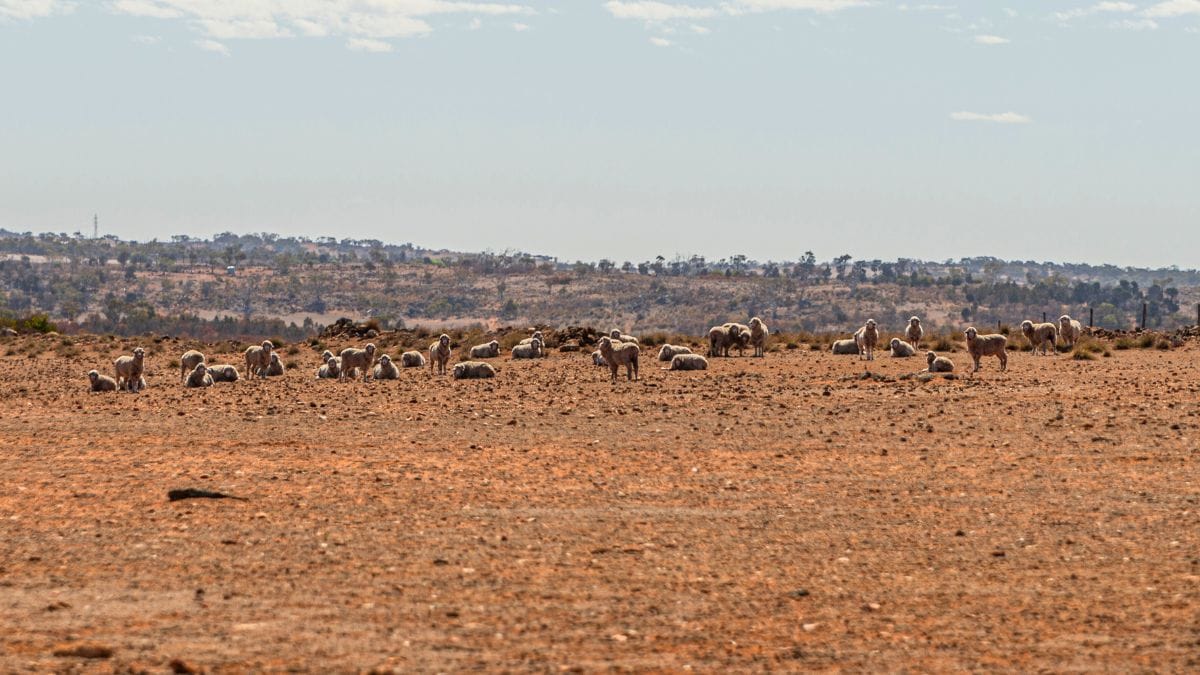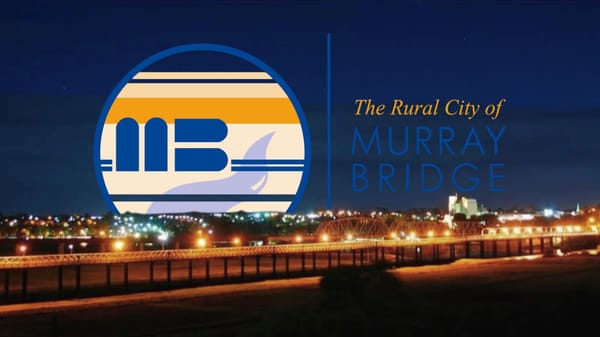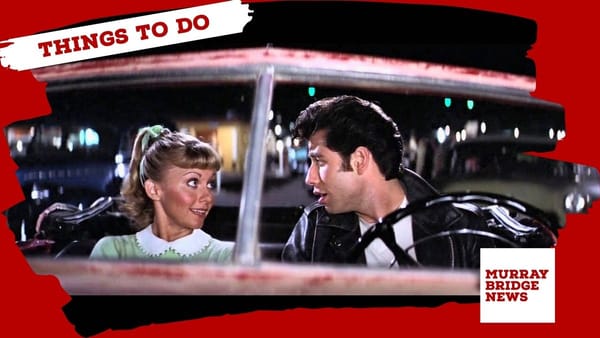Housing, cost of living remain biggest local issues in election campaign’s final days
Liberal MP Tony Pasin and six other candidates for Barker have answered voters' questions at a forum hosted by Murray Bridge News ahead of the 2025 federal election.

Meet the candidates
- Tony Pasin (Liberal)
- Rosa Hillam (independent)
- Jonathan Pietzsch (National)
- James Rothe (Labor)
- Jennifer Troeth (One Nation)
- Michael Brohier (Family First)
- Ian Penno (independent)
- Robert Jameson (Trumpet of Patriots)
- Major Moogy Sumner (Greens)
- Cody Scholes (independent)
Find out where they stand on the big issues
Look back on their campaign promises
- Liberals promise 100k for Tailem Bend's RSL
- Liberal MP Tony Pasin pledges 400k to Players and Singers
- Liberals commit $50 million to Foodbank and other food charities
- Liberals promise extra $315 million for Swanport Bridge and Monarto bypass
- Liberals promise $500,000 for CCTV, lighting at Sturt Reserve
- Labor promises $4.85 million for Sturt Reserve play space if elected
Find out where to vote
This story is free to read. Help Murray Bridge News tell more stories like this by subscribing today.
How can a distant federal government help regional South Australians who are struggling with drought, a housing shortage and the high cost of living?
The candidates for Barker put their ideas forward at an election forum at Murray Bridge’s Bridgeport Hotel on Monday night.
About 60 people came to hear from Liberal MP Tony Pasin, his Labor rival James Rothe and five minor-party and independent candidates at the event, which was hosted by Murray Bridge News.
Only the Greens, One Nation and Trumpet of Patriot candidates were unable to attend.
Audience members most often asked about the housing crisis: the high cost and low availability of both rental housing and homes for sale across the region, an issue which had been prominent throughout the election campaign.
What solutions could the candidates offer?
- Liberals: Restrict foreign housing ownership; let first home buyers and older women access their superannuation to pay home loan deposit; spend $5 billion on infrastructure in new housing developments
- Labor: Guarantee first home buyers’ loans so they can get into the market with a smaller deposit; invest $10 billion in a Housing Australia Future Fund, then spend $500 million of its profits building social and public housing each year
- Nationals: Tax deductions for first home buyers
- Rosa Hillam, independent: Limit the number of homes a single investor can own
Both Labor and the Coalition’s representatives defended the subsidies provided to landlords by way of negative gearing.
Would less immigration make a difference?
Asked whether they would reduce immigration to ease pressure on the housing market, most of the candidates said Australia needed to “get the balance right” by limiting arrivals from overseas.
Mr Pasin, Nationals candidate Jonathan Pietzsch and independent Cody Scholes all expressed pride in family members who had migrated to Australia.
Still, Mr Pasin claimed that immigrants pushed low-income Australians out of the housing market: “We’ve opened up too broadly, too fast.”
Mr Rothe pushed back, saying that it was wrong to blame foreigners for Australians’ problems.
“I don’t agree with gaslighting migrants,” the Labor candidate said.
“If you look at any of your ancestors, somewhere along that line they would have come from another country to Australia for a fair go.
“We can’t just shut the borders.”
Foreign doctors and other experts were badly needed to fill jobs in regional SA, Ms Hillam added.
“It’s not migrants that have caused our housing shortage, it’s the lack of will from governments,” she said.
Instead of relying on migrants to grow our nation’s population, Family First’s Michael Brohier wanted incentives for Australian families to have more children; those children could then move to the regions to fill fruit-picking jobs, he said.

What can be done for drought-stricken farmers?
Asked what they would do to support locals affected by drought, the candidates with an agricultural background had some practical suggestions.
The Nationals’ Mr Pietzsch suggested that the Farm Household Allowance to be indexed to the current cost of farming, and that farm management deposits to be made available to non-farm businesses in the agricultural sector.
He also called for previous drought preparedness projects to be re-evaluated: “I don’t know that that (spending) has actually had a real impact”.
Liberal MP Mr Pasin argued that relief needed to be made more easily available: not just to households receiving the Farm Household Allowance, and not just as a co-investment in new infrastructure.
He also emphasised the importance of mental health support in rural communities: “We’ve got to make sure we’ve got our farmers in good health and wellness when (the rain comes).”
Independent Ian Penno called for more widespread adoption of multi-peril crop insurance in South Australia as a way to help growers through hard years.
Labor’s Mr Rothe acknowledged that drought was a massive problem and that more support was needed; Ms Hillam called for funding to be rolled out more quickly.
Mr Scholes blamed “red tape”, rather than legal and practical considerations, for making it too difficult to bring flood water from Queensland down to South Australia for use on farms.



Rosa Hillam, James Rothe and Jonathan Pietzsch answer questions at the Bridgeport Hotel on Monday night. Photos: Liana Webster.
What about ‘unsustainable’ local councils?
Mid Murray Mayor Simone Bailey asked candidates what they would do to support local governments across Barker, most of which had been found by the Essential Services Commission to be financially unsustainable.
Federal funding to councils had halved in the past 20 years, she said; that had forced almost all of them to demand more money from ratepayers.
Mr Pasin and Mr Pietzsch noted that the Coalition had promised to increase federal road funding to councils by $1 billion per year, a commitment not yet matched by Labor.
That was a good idea, Mr Penno agreed.
Labor’s Mr Rothe noted that it was important for federal governments to work with local governments, but didn’t commit to anything.
Ms Hillam hoped that whichever party won government would take the time to listen to regional councils and fund them properly.
What did the candidates disagree on?
The divide most evident on Monday night – as it was at the last election – was between the party candidates and those who were disillusioned with politics altogether.
Mr Scholes was most critical of Australia’s two-party system, describing it as a “disaster” and the nation’s leaders as “incompetent”, “unaccountable, ignorant and upper-class”.
Mr Penno argued that voters had been taken for granted for too long.
The third independent, Ms Hillam, expressed her disappointment that the federal parliament did not reflect the diversity of the Australian people, including carers and people on low incomes.
The Coalition candidates, Mr Pasin and Mr Pietzsch, gave polished answers about their parties’ policies; Mr Rothe, the young Labor candidate, was less outspoken but also stuck to party lines.

On most issues, many of the candidates had similar views: concern about the cost of living, belief in the importance of families and scepticism about renewable energy.
But there were moments of tension.
Mr Pasin and a questioner clashed on the issue of mining royalties; the MP described the figures quoted by the voter as “bunkum” and argued that “iron ore, gas and coal keep our hospitals open (and) our schools functioning”.
Mr Scholes and Mr Pasin disagreed about whether a Liberal MP would be able to work effectively with a Labor government, if Labor were returned to office.
Mr Penno was also lightly booed after he made disparaging remarks about migrants allegedly “terrorising” elderly people in Australia’s cities.
The Labor candidate, Mr Rothe, rejected that suggestion wholeheartedly.
“It’s not just migrants that run the streets at three o’clock in the morning, mate,” he said.

What does it all mean for the election?
In practice, the answer may be: not much.
One in six voters in Barker – almost 21,000 of them – had already voted by the time Monday night’s forum started, according to the Australian Electoral Commission.
In a traditionally “safe” electorate, as much as anything, the event served as a popularity check for the Liberal MP who is seeking a fifth term in office, and a preview of the next three years.
While opinion polls have suggested Labor is in the box seat to retain government, we will not know until Saturday night whether they will succeed.
Until the votes are counted, anything is possible.
- Watch a replay of the forum: www.facebook.com.






